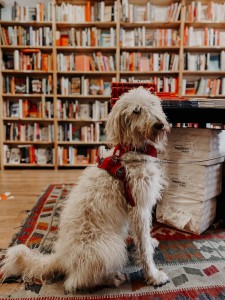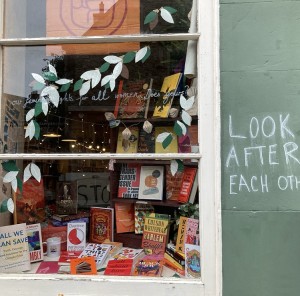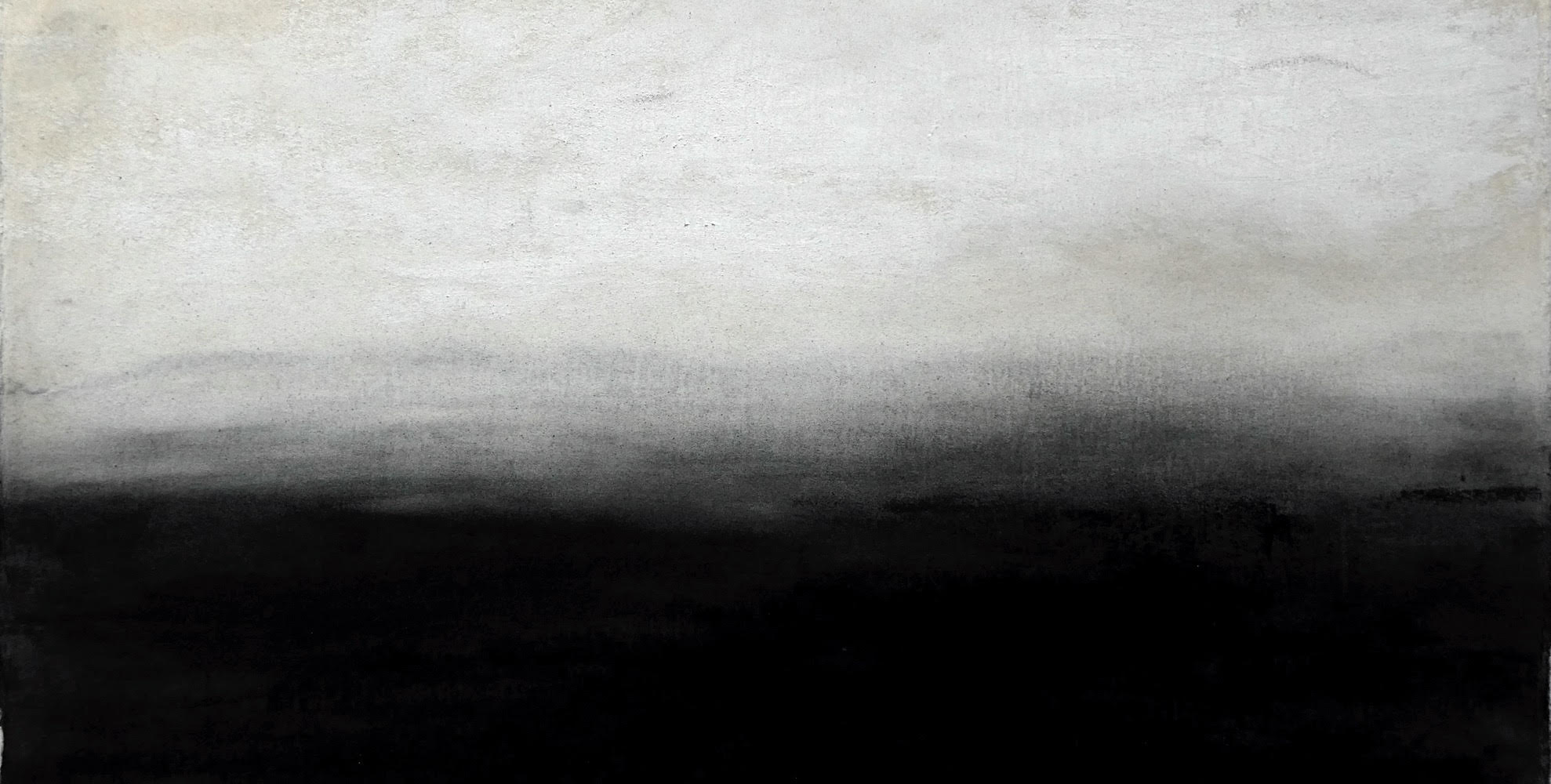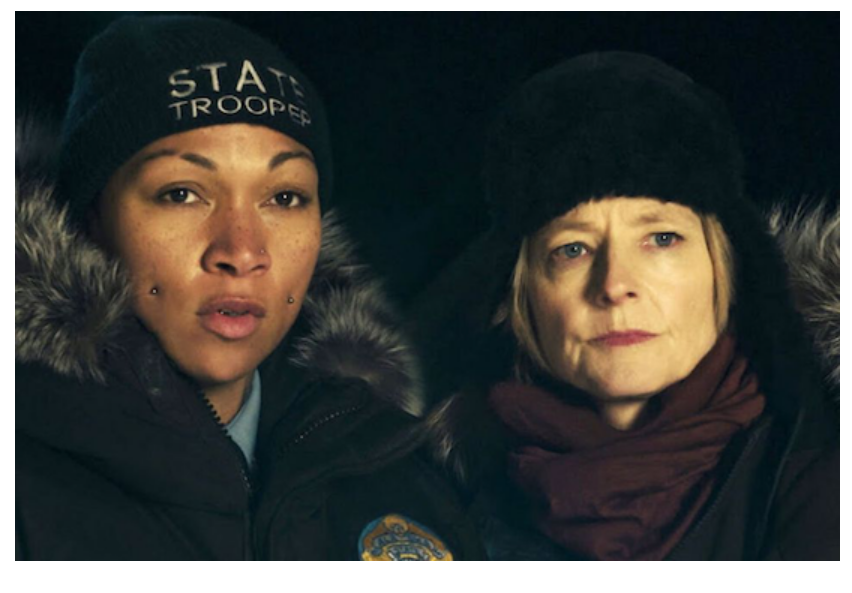
A Leaving Statement from Tariq Goddard, a Founder and Editor of Repeater and Zer0 Books
Repeater and Zero Books are publishing imprints that have become a culture. That culture will endure longer than the individuals that helped bring it about,
In this eight instalment of Repeater’s short guide to radical independent bookshops, we spoke to Mairi (she/her), Founder of Lighthouse Bookshop in Edinburgh.
Lighthouse is a relatively new independent bookshop, set up in 2017. What is your origin story?
A woman called Elaine Henry opened Word Power Books in 1994, a radical bookshop in Edinburgh. It was sort of a follow-on from a few other radical bookshops that existed in the 1980s in Edinburgh, including Lavender Menace, which was Scotland’s first LGBT bookshop, The First of May, which was a workers bookshop, and WomanZone, which was a feminist bookshop. When they all closed, Elaine wanted to bring those different radical strands back together, running Word Power Books for 24 years until she retired. I was a regular in the bookshop whilst also working for another bookshop in Scotland, Topping Books in St. Andrews. I had repeatedly applied for a job at Word Power Books and wasn’t given one, but when she decided to retire Elaine got in touch to say that she had put it up for sale. She reached out to many other people I’m sure, but asked me if I would be interested in taking it on.
Lighthouse is about connecting people with the books that make them feel seen, empowered and informed.
I thought that it was a pipe dream and was incredibly touched that she thought of me. My heart had always been in selling feminist and queer books, and I rang my partner on my lunch break to say that Elaine was selling the bookshop and that it would be amazing to see what it could become. By the time I got home that night I knew that I just had to try and find the money. A few months later, in April 2017, I got the keys, and received a substantial part of a loan from my parents. I’ve only recently become comfortable with openly saying that; it’s really hard to get any money out of anyone for books and that’s how I made it possible.

Is there an inspiration behind the name the lighthouse?
A few things. I had originally thought of keeping the name Word Power, but there was such a legacy and people already knew what Word Power Books was all about. It felt like we needed a fresh start to be able to have our own identity and for people to know that, although it was still a radical bookshop, it was going to be different and part of a new generation.
The name was a blend of a testament to Searchlight, the anti fascist magazine and the work that they were doing, the idea of a lighthouse as a beacon in the dark and a safe haven which gives knowledge that you’re not far from home, and a nod to the lesbian feminism of Virginia Woolf.
What is your mission? Do you have a particular set of values?
I think that Jess, who runs our digital campaigns, captured this recently in the statement read, think, act. At the heart of what we do is this idea that we genuinely believe that books can be tools and inspirations for facilitating change and making the world a better place. For us, Lighthouse is about connecting people with the books that make them feel seen, empowered and informed. We then offer them the community space and jumping-off point to use that in their world or their lives, however that might be.
Events are a great place to connect what’s on the page with the author, or for the author to see how their work is landing with readers and be able to champion what their ideas are about.
Do you specialise in any specific titles or genres, and who decides what books Lighthouse buys in and sells?
We do a bit of everything, from poetry and children’s books to books about cookery and gardening. However, we try to always prioritise voices from the margins and the stories that we haven’t seen crop up before. We use good old-fashioned feminist counting which means that there’s a cap, which we arbitrarily set at 50%, on what we’re subbing for new books in terms of taking in white men. Most of what is published, front-listed and championed by mainstream publishers, in nonfiction especially, is written by Western, upper middle-class white men. As a result, we have to keep account of what we’re taking in; we try to make sure that what ends up on the shelf is mostly from small presses and marginalised voices.
For example, if we see a new book on the Middle East, perhaps about Syria, that Penguin Random House is bringing out, we look at whether there is a Syrian writer from the region who has a story to tell. We will go and look for a publisher that is doing that if we think that this story is something that we should have on the shelves; that is how we balance what the publishers show us with what we decide.
We try to make sure that what ends up on the shelf is mostly from small presses and marginalised voices.
Most of the decision-making is done by me or Jim, who runs the bookshop day-to-day, and we have meetings with publishers in which we look through catalogues. Then other booksellers have their specialist knowledge and get to lead on digging out other things. All of our catalogues are in the office and people tend to peruse them in lunch breaks or take them home. For example, most of our poetry will be picked by Peach and most of our esoteric or queer fiction will be picked by Lindsay. Everyone’s got their flavour, and you can tell this by the different sections of the bookshop.
Do you host events and, if so, what do you have lined up?
Events are a funny one. In 2019, we did around 190 events and it was the backbone of what we were doing. The pandemic put a halt to this. We have a team who are vulnerable to Covid-19 and so, although a lot of people have gone back to in-person events, we’ve had to keep that to an absolute minimum. At the moment we’re running all of our events in the bookshop garden, which is getting quite chilly! There are lots of blankets and prayers that it won’t rain.
Events are a great place to connect what’s on the page with the author, or for the author to see how their work is landing with readers and be able to champion what their ideas are about. We are continuing to run them, mostly virtual and with the odd one in the bookshop. We’ve got four book clubs and at the moment we’re running those online but send people a copy of the book beforehand. We’ve got an LGBT one called ‘Other Fruit’, an environmentalism and politics one called ‘Future Generations’, a sci-fi one called ‘Bright Futures’, and a ‘Women in Translation’ one which involves fiction. We also do Zine workshops, writing workshops, and artists gatherings where people get to be a bit more creative; we’ll get these back next year.
At the heart of what we do is this idea that we genuinely believe that books can be tools and inspirations for facilitating change and making the world a better place.
We are also running our radical Book Fair from the 11th to the 14th of November. We have 16 events and various publisher stalls, and we’re hoping to have some Repeater authors in the lineup. Half of the room in this big old converted church is made up of stalls where people can discover what different publishers, such as Pluto and Repeater, are all about. The other half of the room is the event space.
Edinburgh is home to a fantastic university. Do many students come into the shop? Have you developed a relationship with the university?
We are about 15 metres from George Square, which is the main arts campus of Edinburgh University, so it’s hard for us not to be a part of it. We are very closely connected to the University through friendships and a relationship with the UCU (University and College Union). We hosted a lot of the teachers during the last University strikes, taking staff and students out of the context in which they were teaching and learning and allowing them to build solidarity in a different type of relationship. We also do bookstalls for different student audiences, if it chimes with what we’re doing, and we supply the books for various book groups at JMU (James Madison University).
However, we try to make sure that we’re not a university bookshop; we don’t do textbooks the way that Blackwell’s do and we don’t do a student discount because we can’t afford to. The notion that ideas can exist and flourish beyond the university context is something that we want to instil as much into non-students as students.

You state on your website that one of your values is high environmental and sustainability standards. How does this manifest in the shop? Do you think this is a value that independent bookshops are generally adhering to, or is more work required?
I think that more work is required, mostly because implementing a lot of more environmentally-friendly choices tends to have a cost component. All of our cardboard and materials in the bookshop get recycled, but recycling everything is more expensive than just disposing of it.
All of our packaging is as environmentally-friendly as packaging can be. Of course, anytime you are packing a book in a cardboard envelope and sending it into the world that has a footprint. But the packaging that we do use is of the highest standard, and we do the same with our tape, stickers, and tote bags, which use eco-friendly inks.
In general, whatever choices we make, whether that’s where we’re hosting an event, how we’re getting an author to an event, how we’re sending a book into the world or receiving it, we’re actively making a decision that there has to be an environmental choice along the way. That consciousness means that we end up choosing more ethical firms and lowering our footprint.
Queer, feminist, and radical.
Crucially for us, there is also the component of being part of a broader movement and campaign. We’re involved with the Stop Cambo campaign, which aims to stop the construction of new oil fields in the North Sea, and we provide an organising and storage space for environmental campaigners, something that we were doing more actively before Covid-19.
We’re not going to solve the climate crisis and our footprint isn’t the one that’s making the difference, but we can connect people to active environmental movements that are making the difference. For us, we mainly have a part to play in the environmental movement from a campaigning point. We actively encourage people to read and think more about our environment, and that’s a contribution in itself.
How would you summarize Lighthouse bookshop and its work in 3 words?
Queer, feminist, and radical.
You can find out more about Lighthouse by clicking here.
Interview by Immy Higgins.
Featured image credit: Lighthouse Bookshop

Repeater and Zero Books are publishing imprints that have become a culture. That culture will endure longer than the individuals that helped bring it about,

If the measure of writing is to get as close as we can to the truth of existence, I know I will never write a

To accompany his latest piece with Tariq Goddard in The Quietus on True Detective Season 4 and the legacy of In The Dust of This Planet, Eugene

Repeater and Zero Books are publishing imprints that have become a culture. That culture will endure longer than the individuals that helped bring it about,

If the measure of writing is to get as close as we can to the truth of existence, I know I will never write a

To accompany his latest piece with Tariq Goddard in The Quietus on True Detective Season 4 and the legacy of In The Dust of This Planet, Eugene
